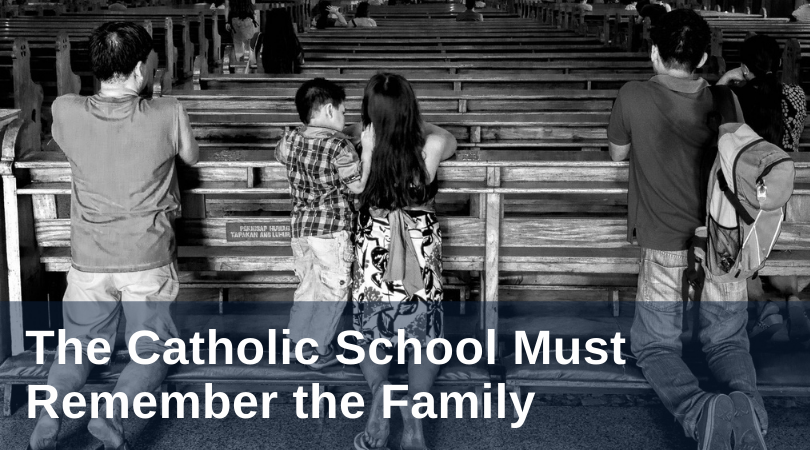
The task of the Catholic school is to teach its students to behold reality, to make sense of what they encounter around and within them. Beyond simply presenting the breadth and depth of human knowledge to its students, it must preach the Gospel, integrating that human knowledge into an authentically Christian worldview and forming its students to be disciples of Jesus. The result ought to be “a synthesis of culture and faith, and a synthesis of faith and life” (The Catholic School, §37).
By the very nature of its purpose, then, the Catholic school must build upon that which students first receive at home. Because the moral formation students receive from their parents is at the heart and foundation of their education, “the role of parents in education is of such importance that it is almost impossible to provide an adequate substitute” (Gravissimum Educationis, §3). This means the Catholic school is only capable of fulfilling its momentous task when it works in concert with the families of its students.
So often, however, the school is disconnected from the family. For the majority of students, school and home are two separate worlds with distinct rules, expectations, and aims. For some students, these worlds are even opposed to one another. This divide between the school and the home severely limits what a Catholic school can accomplish because it is operating apart from the heart of its students’ lives. Schools must acknowledge the primacy of the family if they are to truly teach their students to make sense of the world and become good.
How is a Catholic school to do this? By seeing itself as ministering not only to the students sitting in its classrooms, but to their families. This became exceedingly clear to me in the spring of 2020, when the K–8 school where I teach, like nearly every other school, rapidly transitioned to distance learning. During a faculty Zoom meeting, the assistant principal paused the torrent of practical questions and concerns to remind us to think about the families of our students. She encouraged us: “We want to be remembered for our compassion during this time. We want our first response to be compassion.” She called us to respond to the extreme stress many of our families were experiencing. We cannot successfully teach our students when we forget about their families. Distance learning made inescapably evident what is too often disregarded: that parents are the primary educators of their children. We need to carry this lesson forward with us.
The ministry of a Catholic school to its families, like every part of the life of the Church, can and should have many different forms and expressions. Nevertheless, it is an indispensable aspect of education, made all the more necessary by the increasing turbulence of the world as well as the increasing number of hurting and broken families in our communities. Welcoming and embracing both our students and those closest to them is the only way for the Catholic school to truly preach the Gospel and teach its students to behold reality.
Like what you read? Submit your email below to have our newest blogs delivered directly to your inbox each week.
Featured image by Wayne S. Grazio; CC-BY-NC-ND-2.0.


